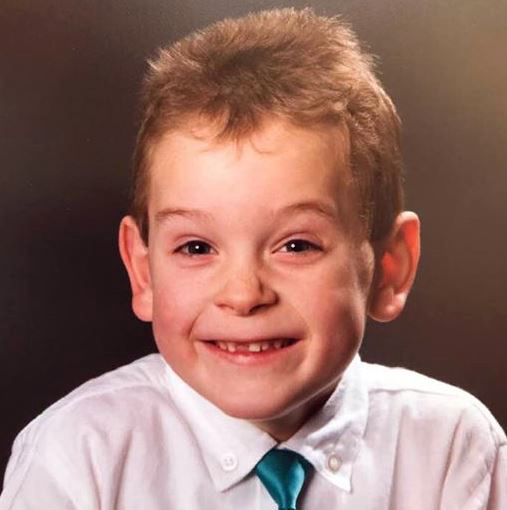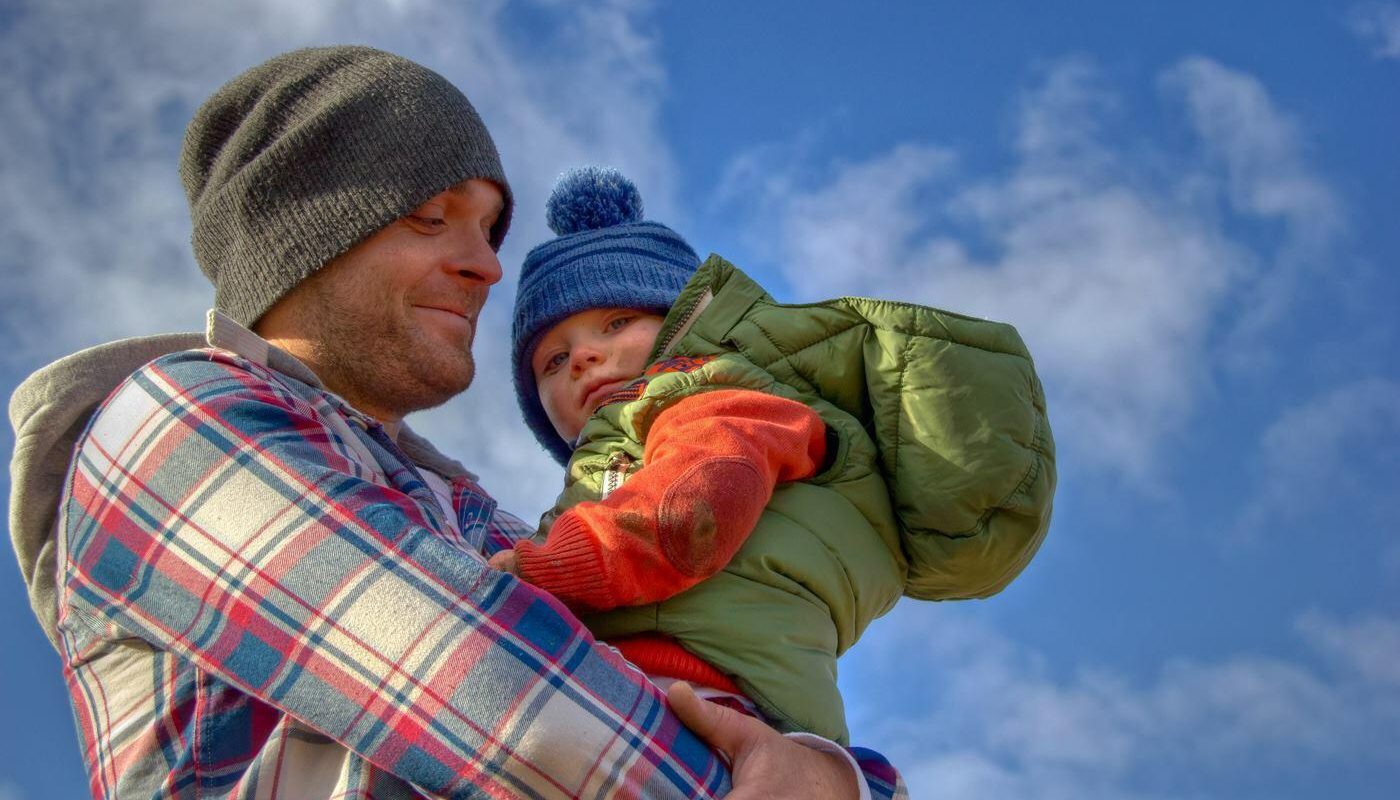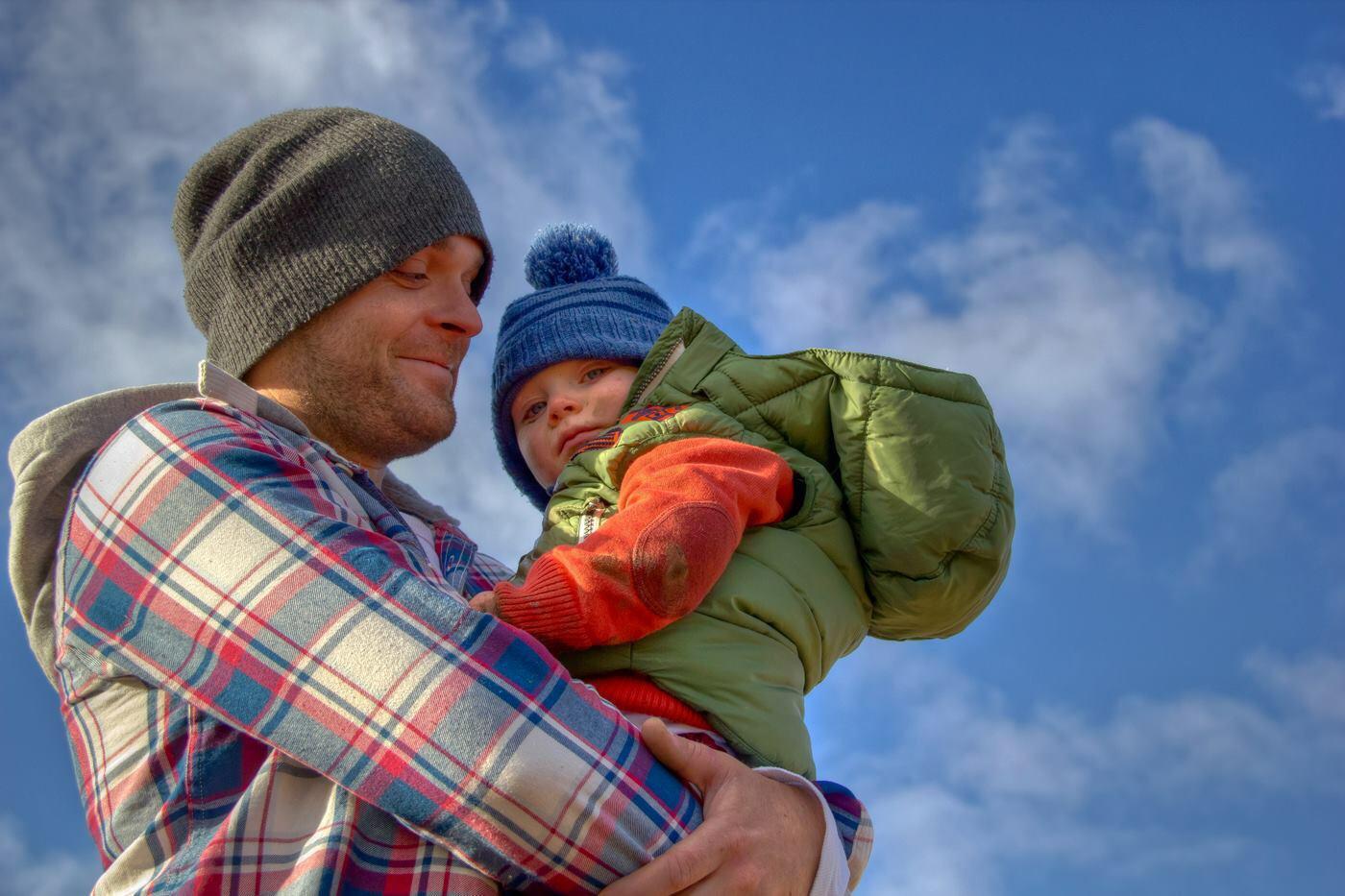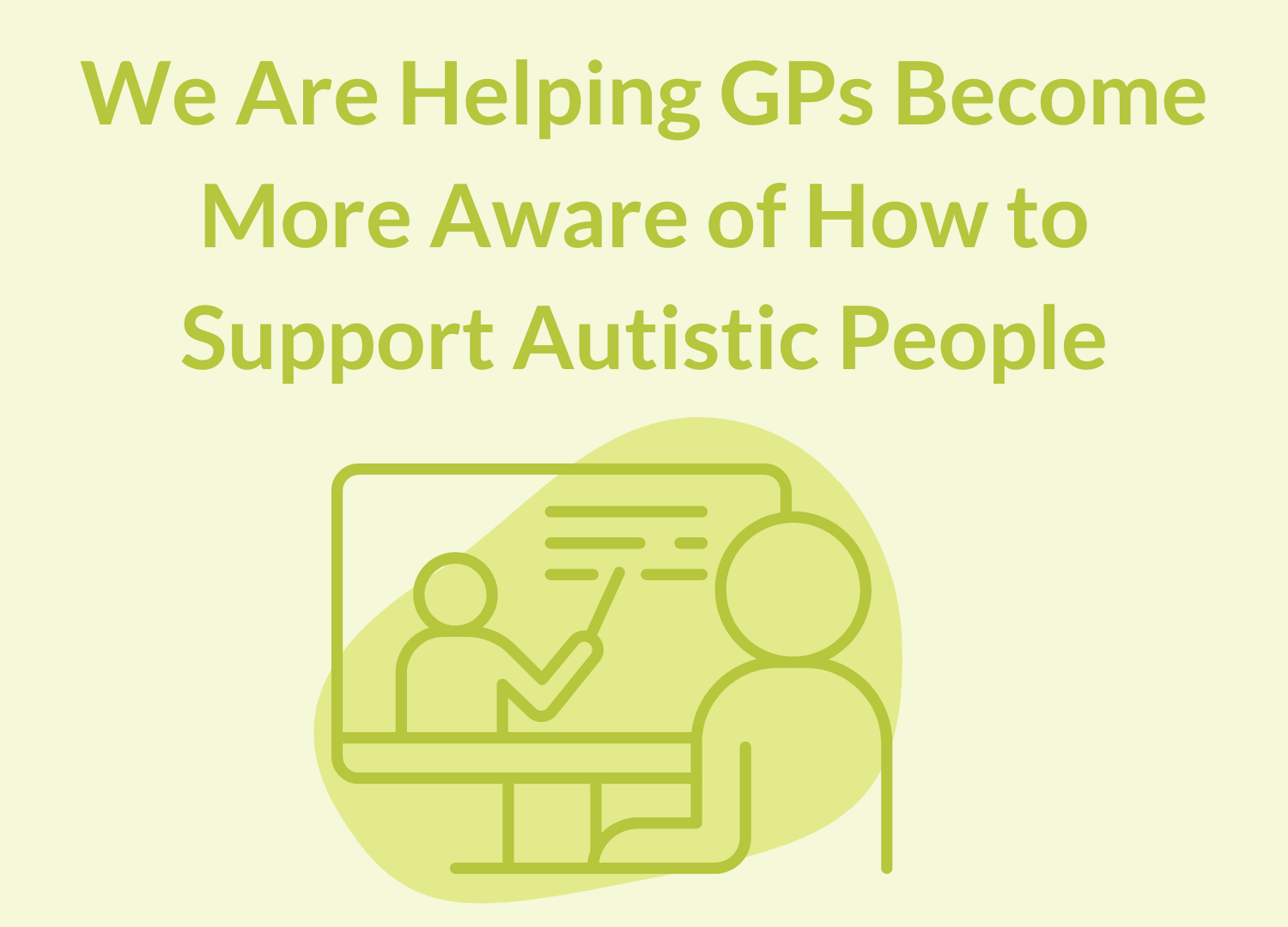Individuals start businesses for a variety of different reasons. This is the reason why we started Help for Psychology and why we are so passionate about supporting families.
Dr Judy Eaton’s son, David was born on Thursday 29th September 1983. He made his entrance in what became typical David fashion – in a rush and not in the right place (he was born in the lift on the way to the labour ward).
…within a very short space of time, it was clear that he never, ever, was able to do as he was asked.
As a small child in the early 80’s with a young mum, who at that point was not knowledgeable about either child development, or Psychology, it was clear that there was always something ‘different’ about him. He began walking (or rather running) at the age of eleven months and within a very short space of time, it was clear that he never, ever, was able to do as he was asked. In fact, most of the time he did the complete opposite. Staff at his playgroup, family, and an experienced childminder all agreed that he was a puzzle. As he grew up, nothing much changed – he continued to be where he shouldn’t be and was never where he was supposed to be, a cheeky little boy whose delightful way of interrupting everyone was to say ‘Excuse me’ in an ever-louder voice until they gave in.

As he grew older, he was known by name in the Accident and Emergency department due to the number of bumps to the head, broken teeth and bruises he accumulated due to the speed at which he approached life.
On another occasion, the police rang the doorbell in the early evening – David had called 999 to ‘see what happened’.
When he was 8 years old, Judy vividly remembers walking out of the kitchen one day to be greeted by the sight of his eighteen-month-old sister’s feet at eye level – David had decided to hoist her on a rope over the bannisters. On another occasion, the police rang the doorbell in the early evening – David had called 999 to ‘see what happened’. He was banned from Cub Scouts and was always excluded from school trips, because no-one was ever sure he could be trusted not to run off, disrupt events, or fail to follow instructions.
School parents’ evenings always started with a sigh. David’s academic achievement (or lack of it) was never discussed. It was always his ‘behaviour’ and how he never seemed to learn from past mistakes, couldn’t listen, was always on his own agenda.

As he grew older, he was known by name in the Accident and Emergency department due to the number of bumps to the head, broken teeth and bruises he accumulated due to the speed at which he approached life.
On another occasion, the police rang the doorbell in the early evening – David had called 999 to ‘see what happened’.
When he was 8 years old, Judy vividly remembers walking out of the kitchen one day to be greeted by the sight of his eighteen-month-old sister’s feet at eye level – David had decided to hoist her on a rope over the bannisters. On another occasion, the police rang the doorbell in the early evening – David had called 999 to ‘see what happened’. He was banned from Cub Scouts and was always excluded from school trips, because no-one was ever sure he could be trusted not to run off, disrupt events, or fail to follow instructions.
School parents’ evenings always started with a sigh. David’s academic achievement (or lack of it) was never discussed. It was always his ‘behaviour’ and how he never seemed to learn from past mistakes, couldn’t listen, was always on his own agenda.
As he became a teenager, these issues intensified and he became increasingly rigid, obsessed by certain things (mostly the band Nirvana and various conspiracy theories) and was very vulnerable to peer pressure. He was constantly in trouble and usually the one left behind when all his supposed friends had run off.
His most notable school achievement was that he achieved a total of 162 ‘incident slips’ for his ‘behaviour’ in one term! That and setting up an entire drum kit in the school hall when he was supposed to be in class.
…all the challenges were down to parenting, and a failure to implement boundaries…
At this point, as many families do, Judy sought support from her local CAMHS team. She was told that this was an attachment issue, and all the challenges were down to parenting, and a failure to implement boundaries, even though she had three other children who were not experiencing the same difficulties or presenting the same challenges.
It was at this point, sitting in that clinic room, that Judy made the decision to pursue a career in clinical psychology. She has spent her time since then studying and subsequently working exclusively in the field of Autism, initially in an NHS diagnostic team, and later in adolescent inpatient services.
David and the family remained unsupported. As David approached adulthood, his life continued to spiral out of control. He was incredibly vulnerable and got into considerable debt taking out mobile phone contracts and selling the phones cheaply to his ‘friends’. He struggled to hold down a job. Following rules was always a challenge! He became increasingly anxious and to cut a long story short was eventually diagnosed with ADHD and anxiety.
In his early twenties, he met his partner, the love of his life and the best partner he could ever have had. Together they had two little boys who meant everything to him. He successfully studied carpentry and began to work. He received a prize for being the best student in his year.
He was also a very talented musician and songwriter and wrote some beautiful songs, the words of which did not always make sense, but that was David.
If you want to hear a song which David wrote himself, and was professionally recorded with him singing and playing the guitar, click below to listen to ‘These are the days’:
David Mason - These are the days
He also struggled with the sensory challenge of living in a busy house with two small boys.
As he became a teenager, these issues intensified and he became increasingly rigid, obsessed by certain things (mostly the band Nirvana and various conspiracy theories) and was very vulnerable to peer pressure. He was constantly in trouble and usually the one left behind when all his supposed friends had run off.
His most notable school achievement was that he achieved a total of 162 ‘incident slips’ for his ‘behaviour’ in one term! That and setting up an entire drum kit in the school hall when he was supposed to be in class.
…all the challenges were down to parenting, and a failure to implement boundaries…
At this point, as many families do, Judy sought support from her local CAMHS team. She was told that this was an attachment issue, and all the challenges were down to parenting, and a failure to implement boundaries, even though she had three other children who were not experiencing the same difficulties or presenting the same challenges.
It was at this point, sitting in that clinic room, that Judy made the decision to pursue a career in clinical psychology. She has spent her time since then studying and subsequently working exclusively in the field of Autism, initially in an NHS diagnostic team, and later in adolescent inpatient services.
David and the family remained unsupported. As David approached adulthood, his life continued to spiral out of control. He was incredibly vulnerable and got into considerable debt taking out mobile phone contracts and selling the phones cheaply to his ‘friends’. He struggled to hold down a job. Following rules was always a challenge! He became increasingly anxious and to cut a long story short was eventually diagnosed with ADHD and anxiety.
In his early twenties, he met his partner, the love of his life and the best partner he could ever have had. Together they had two little boys who meant everything to him. He successfully studied carpentry and began to work. He received a prize for being the best student in his year.
He was also a very talented musician and songwriter and wrote some beautiful songs, the words of which did not always make sense, but that was David.
David Mason - These are the days
He also struggled with the sensory challenge of living in a busy house with two small boys.


Sadly, the good times did not last. David found it impossible to cope with the banter and general teasing that went on when he was at work on a building site. He became increasingly anxious and depressed. He also struggled with the sensory challenge of living in a busy house with two small boys. He was eventually also diagnosed with Autism. This had taken time as, initially, his difficulties seemed to fit more with a diagnosis of ADHD. It was only as he got older, the Autism became much more apparent. As his mother, Judy was not able to diagnose him herself, but was fortunate to be able to find people who could. She often wonders how his life might have been different had he received an appropriate diagnosis and support much earlier in his life.
He was prescribed an ever-increasing amount of medication to manage his anxiety. The way his difficulties were supported by local services was not good and is a different story, for a different time.
David sadly died of undiagnosed pneumonia on the 15th February 2019, at the age of 35. At his funeral, it was standing room only – so many people turned up to say goodbye. It was a testament to the fact that, despite his many challenges, he was so well liked by those around him.
David had the best smile and gave the best hugs. He was funny (not always intentionally) and one of the kindest, most generous men you could hope to meet. He could also be stubborn and remained on his own agenda throughout his too short life. However, his family loved him, and he is much missed.
David was the motivation for Help for Psychology. Judy wanted to develop a team, and a service, that did not automatically judge and question parents’ abilities or their boundaries. A service that looks beyond the obvious. The team at Help for Psychology have worked hard to develop knowledge and expertise in assessing those children who might otherwise have ‘slipped through the net’, or who have been described as ‘too complex’ for other services.
Many of our team are neurodivergent in some way or have lived experience of Autism or parenting an Autistic child. This adds to our team unity and our commitment to doing the best we can for the families who come to see us.


